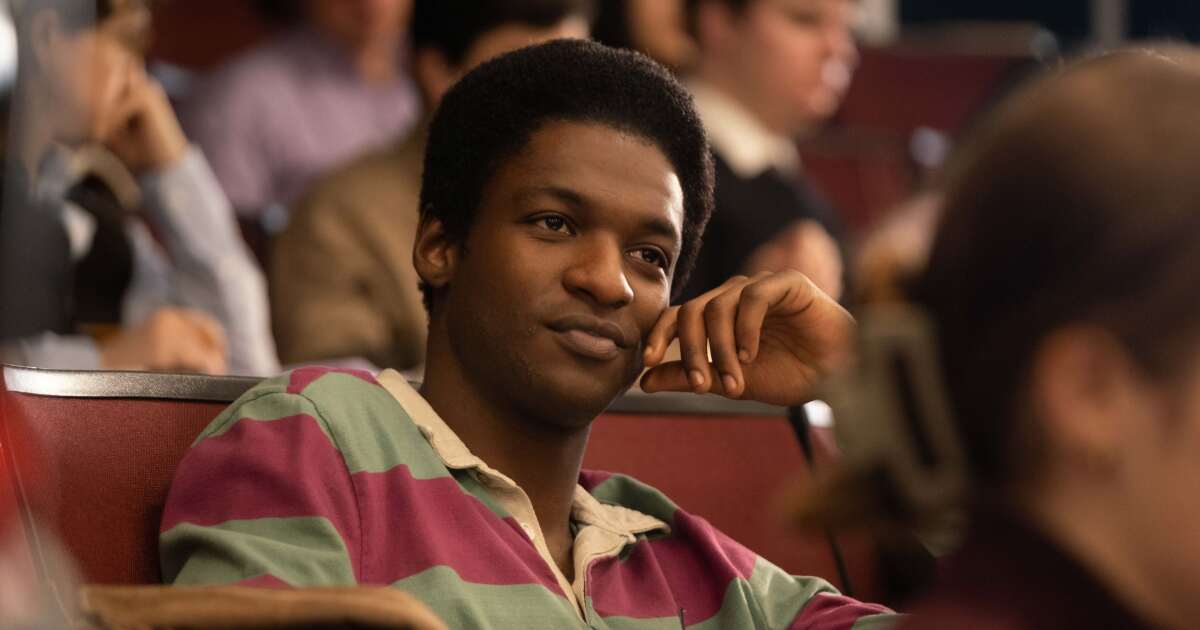Statistics about the social mobility of Black lives don’t always do justice to what it looks like up close for one person. That’s where movies come in handy as vessels of understanding and, in “Rob Peace,” a dramatization about a real-life Yale student whose trajectory defies easy categorization, writer-director Chiwetel Ejiofor (following up his impressive 2019 directing debut, “The Boy Who Harnessed the Wind”) proves more earnest than skillful at bringing heartfelt complexity to another tale of whiz-kid promise and resourcefulness.
Growing up in a blighted section of East Orange, N.J., 7-year-old Rob (Jelani Dacres) shows a flair for numbers, a gift his aspirational single mom, Jackie (a strong Mary J. Blige), who works three jobs, wants to see nurtured in private school and college. But spending time with his big-hearted, drug-dealing dad, Skeet (Ejiofor) introduces this observant boy to the realities of survival in an underserved community. “You look out for people, they look out for you,” he tells him.
Both systems of individual progress — a mother’s hope for escape, a father’s belief in reaching behind you on the way up — are put to the test after Skeet is sent to prison for murder when Peace is still a boy establishing his academic prowess. Though he sails his way through a supportive prep school and gets accepted to Yale with a free ride, Peace (Jay Will takes over the role in adolescence), who dives into molecular biology with dreams of curing cancer one day, still toils at getting his father freed, believing him innocent. That sense of duty, coupled with an opportunistic boldness, leads this thoughtful, socially skillful collegian down a path that, while setting him apart as a purposeful prodigy, eventually puts his carefully cultivated future at risk.
Ejiofor, adapting a 2014 book about Peace by Jeff Hobbs, who was his roommate at Yale, is rightly convinced that the multitudes within his easy-to-admire protagonist are film-worthy. But Peace’s fascinating contradictions can awkwardly bump up against the think piece about two Americas that Ejiofor is also after, which results in a framework where anyone who isn’t Rob Peace — a classmate, a girlfriend (Camila Cabello), a professor (Mare Winningham), even a parent — can seem more like a thematic sounding board than a flesh-and-blood figure. (Sample dialogue: “You deserve your shot at being happy.” Or: “You bring people together.”)
Will is magnetic as Peace, his personality and heft often making up for Ejiofor’s overuse of close-ups. (There’s also an inexplicable dependence on orange and red in Ksenia Sereda’s otherwise unfussy cinematography.) Will imbues Peace with a flowing, cagey charm, alternating between humor, wisdom and a breezy I-belong-here confidence. But he also knows when to let slip that his high-wire act is a burden, bringing underplayed pain to a wonderfully tense, defensive moment when he says to a doubter, “I’m the person you think I am.”
The actor is so good at casually upending our notion of an underclass hero that his portrayal hints at how richer a miniseries might have been at fleshing out the narrative around him, those situations and circumstances that made Peace’s approach to destiny so exhilarating and tragic. The movie that bears his name is good enough at conveying breadth and can articulate its nuances, but like the life itself, pinging with promise, it leaves you expecting more.

